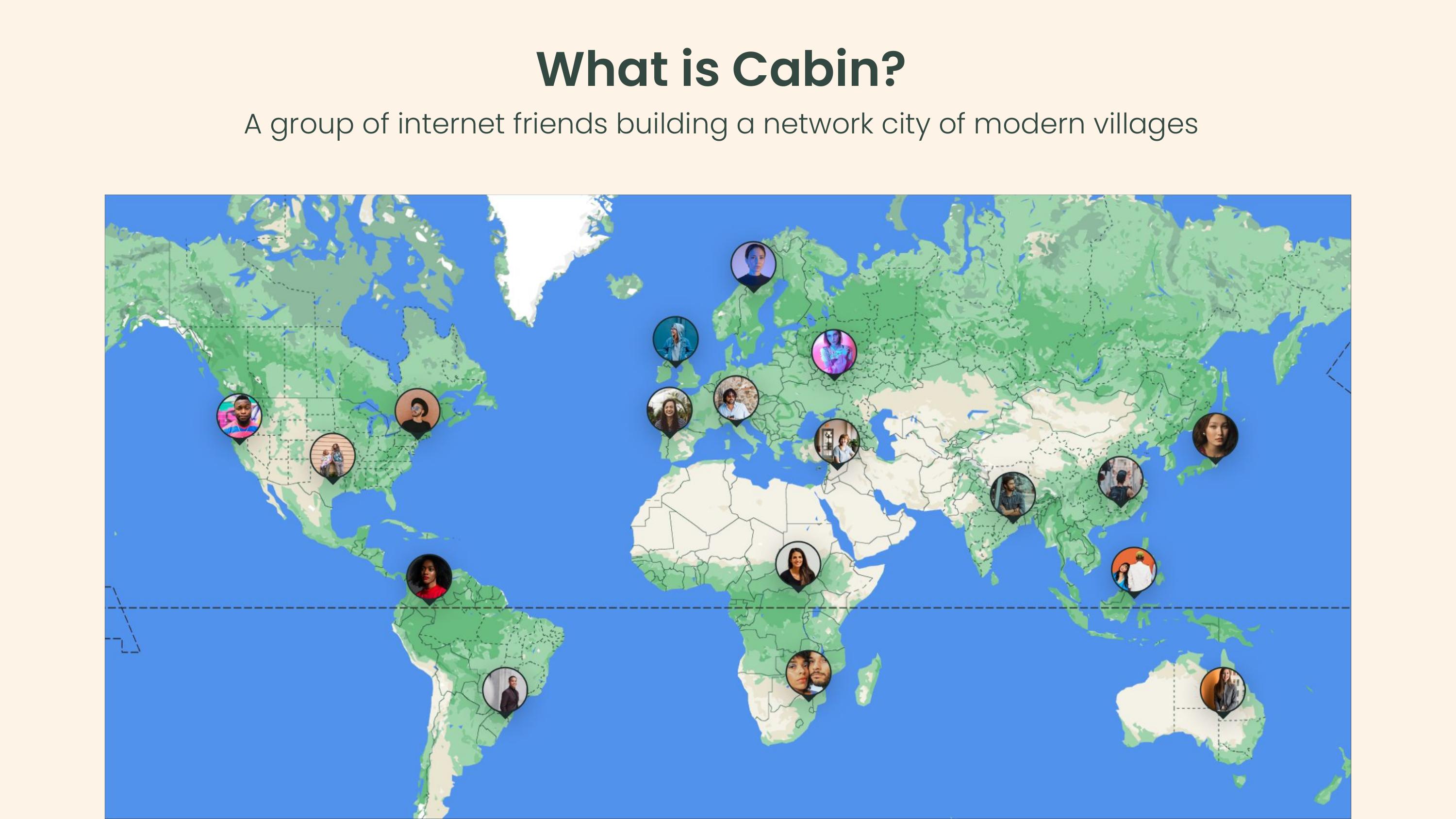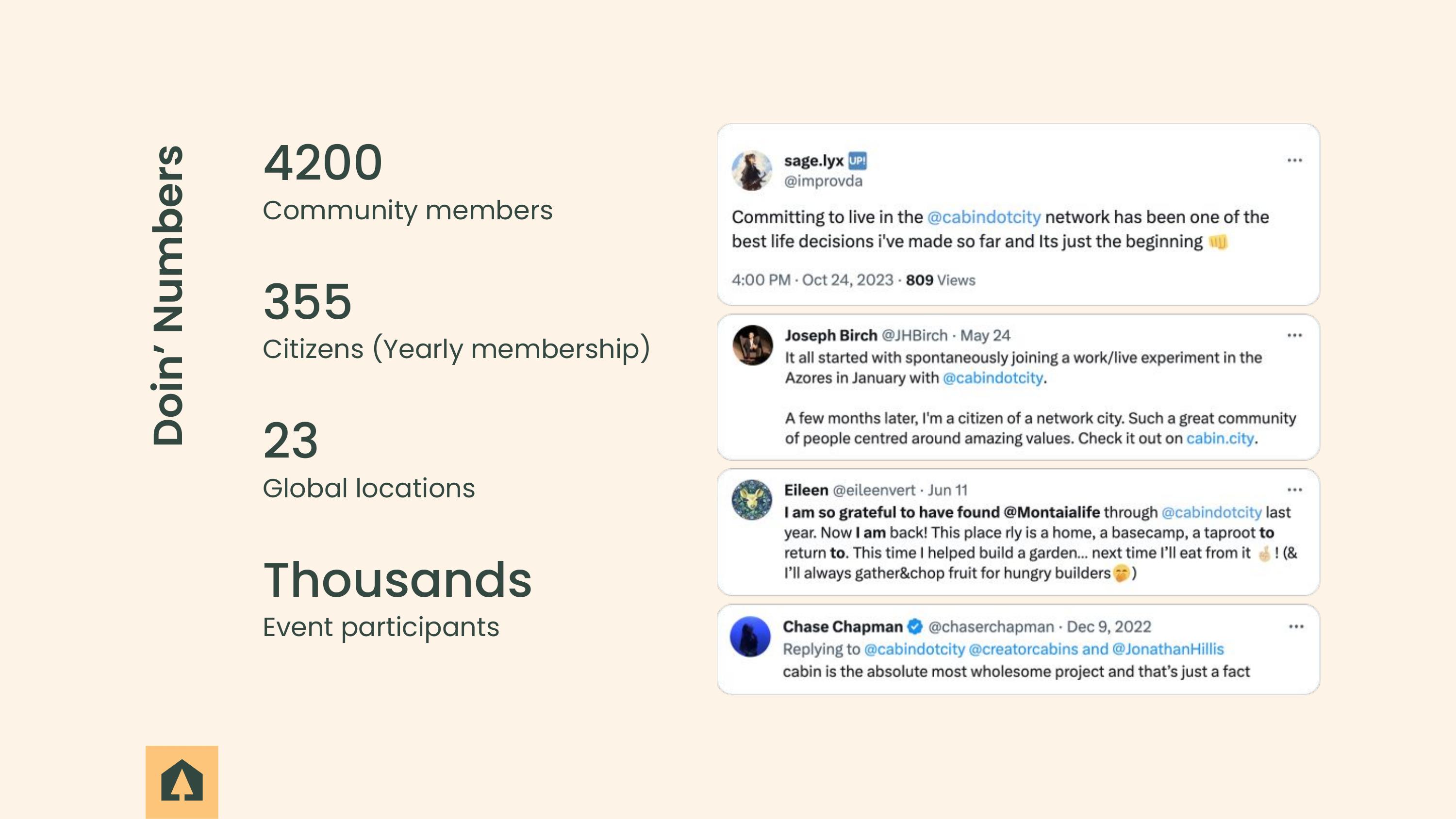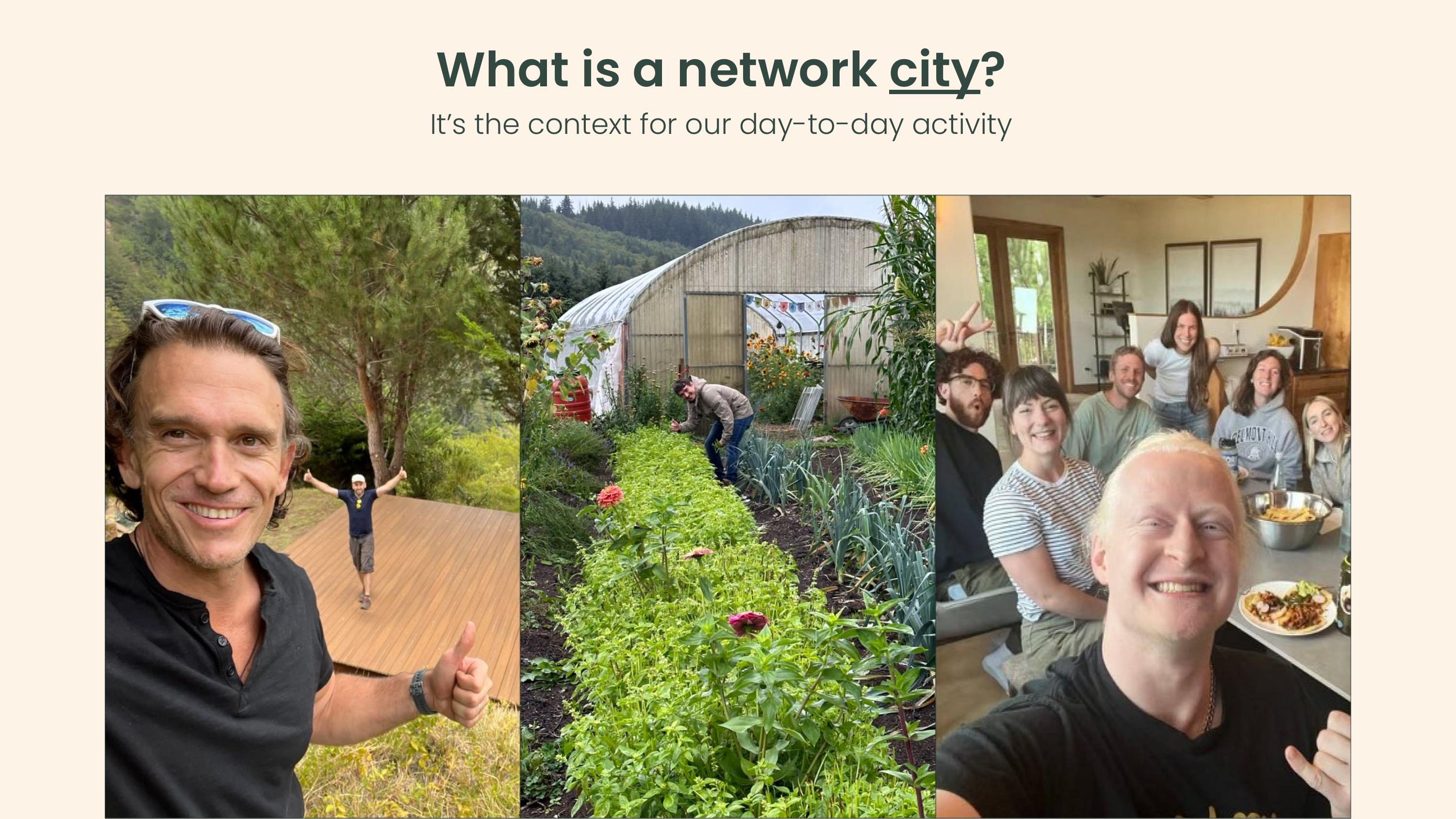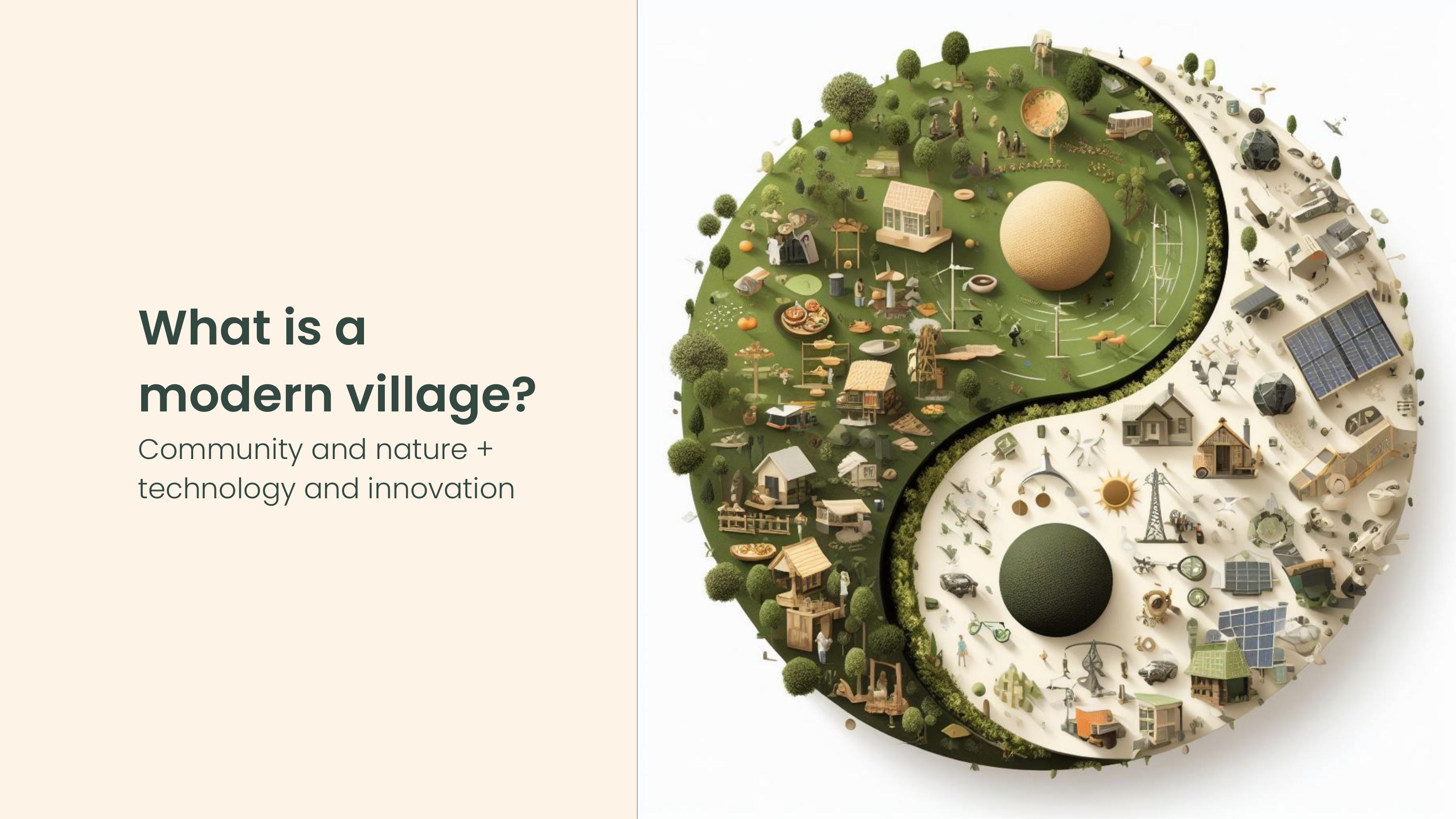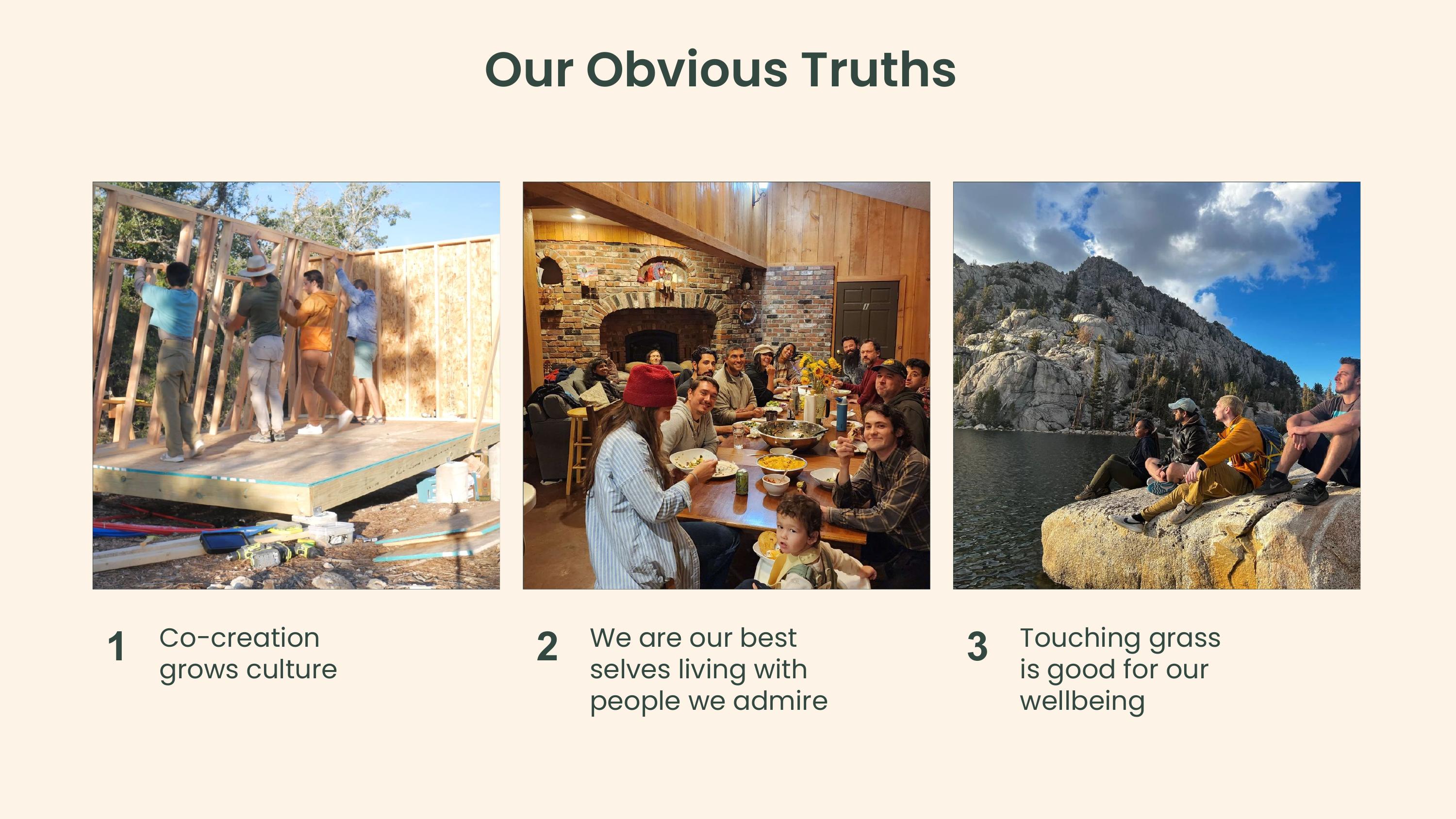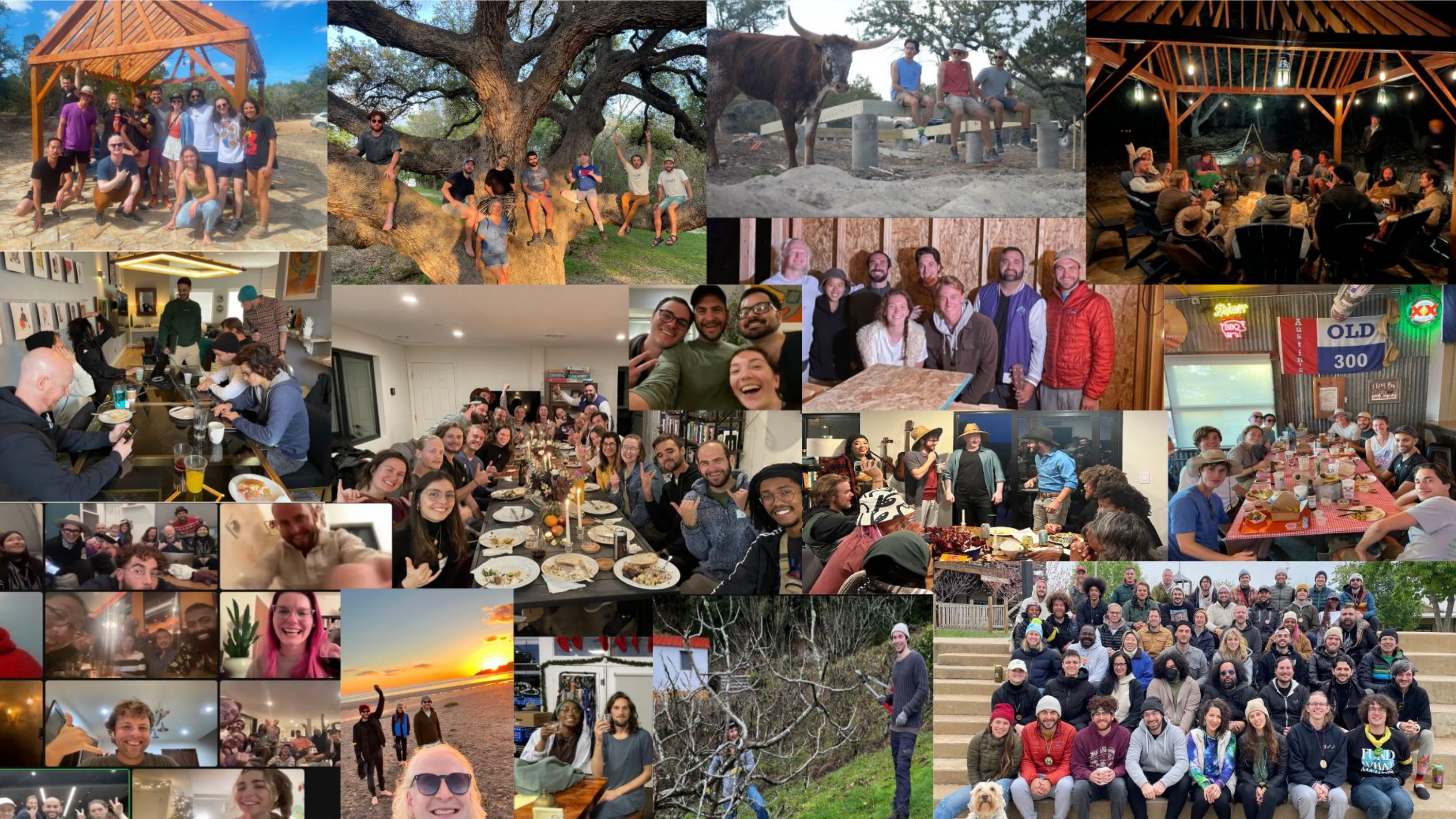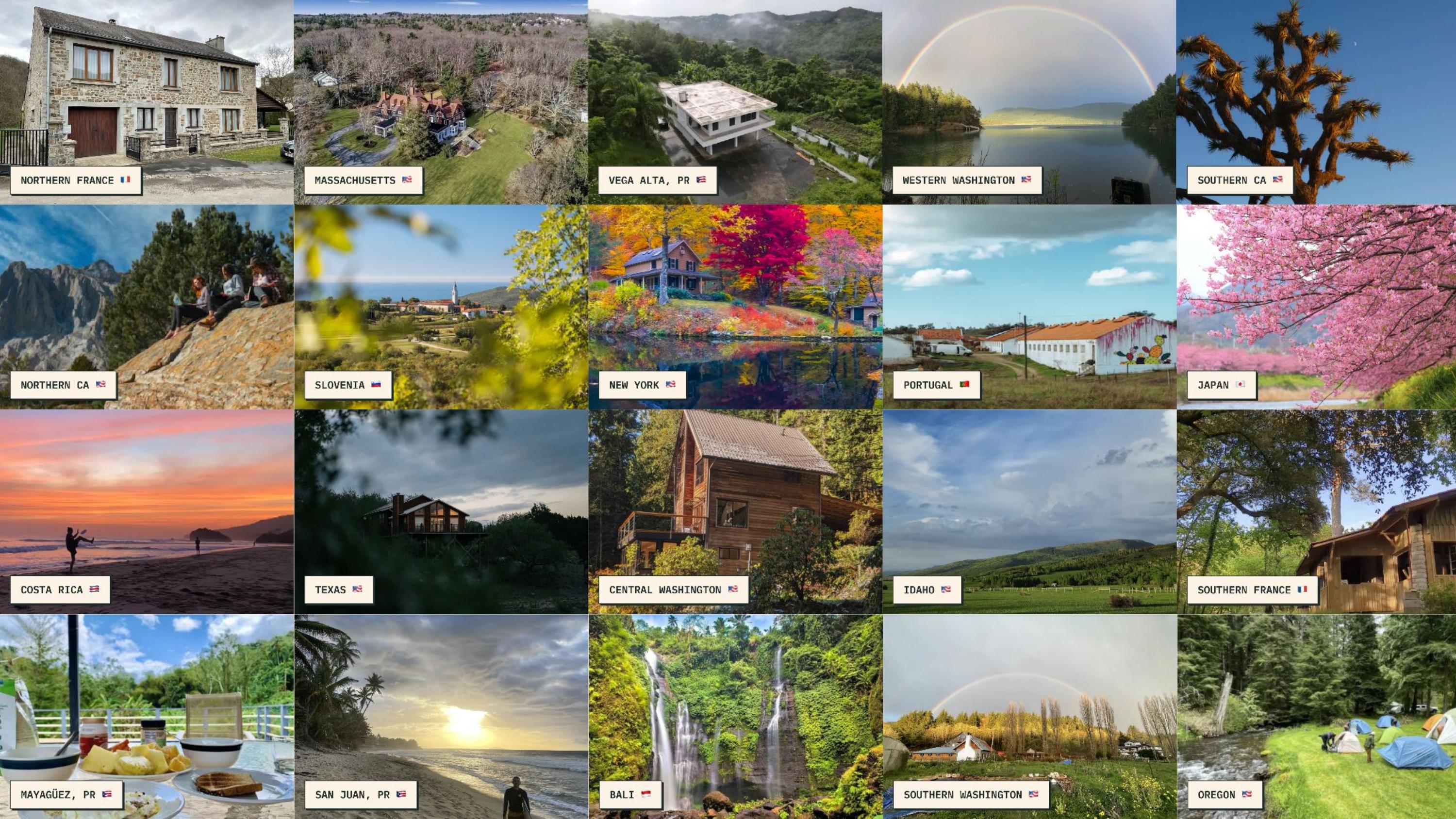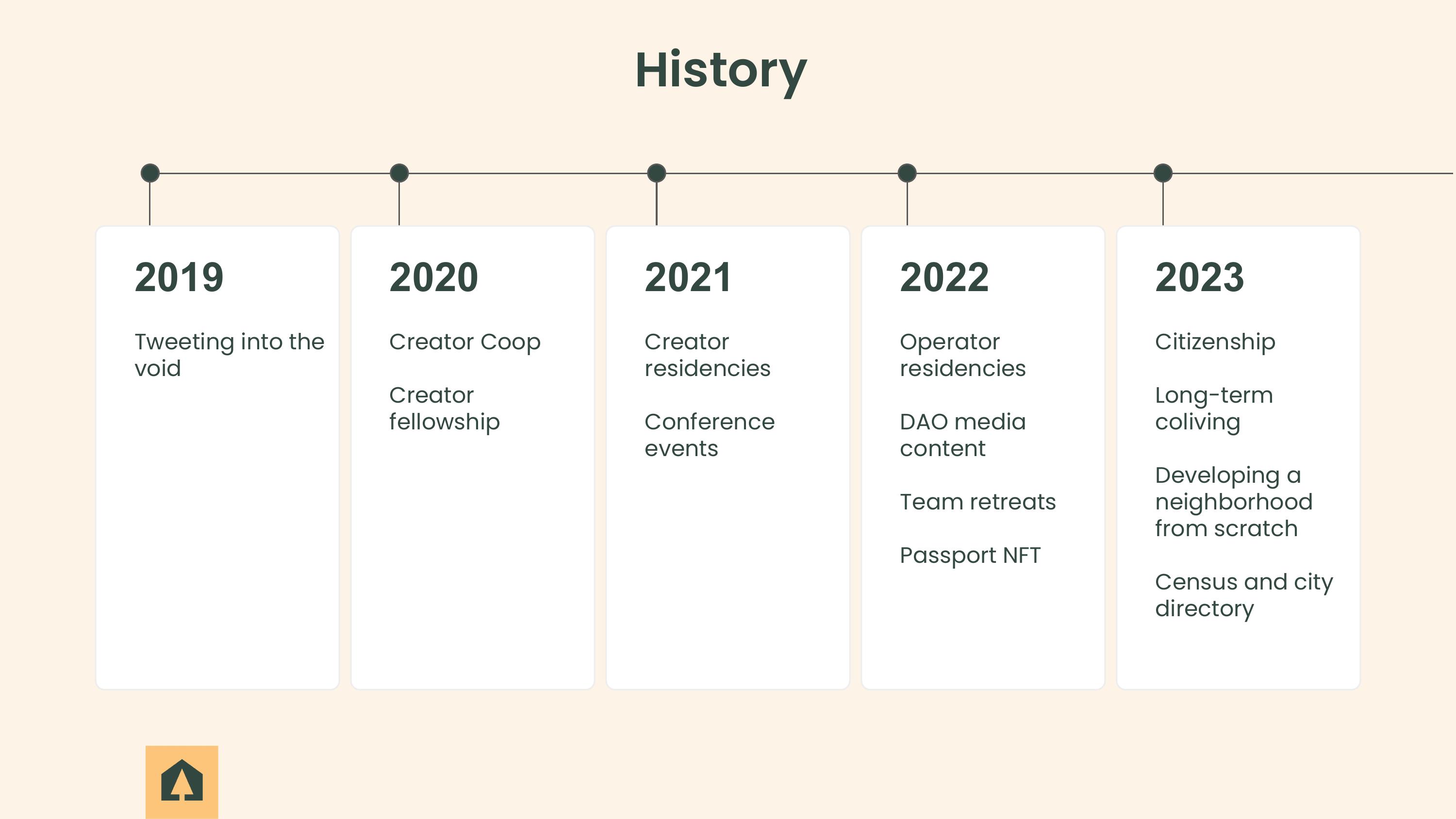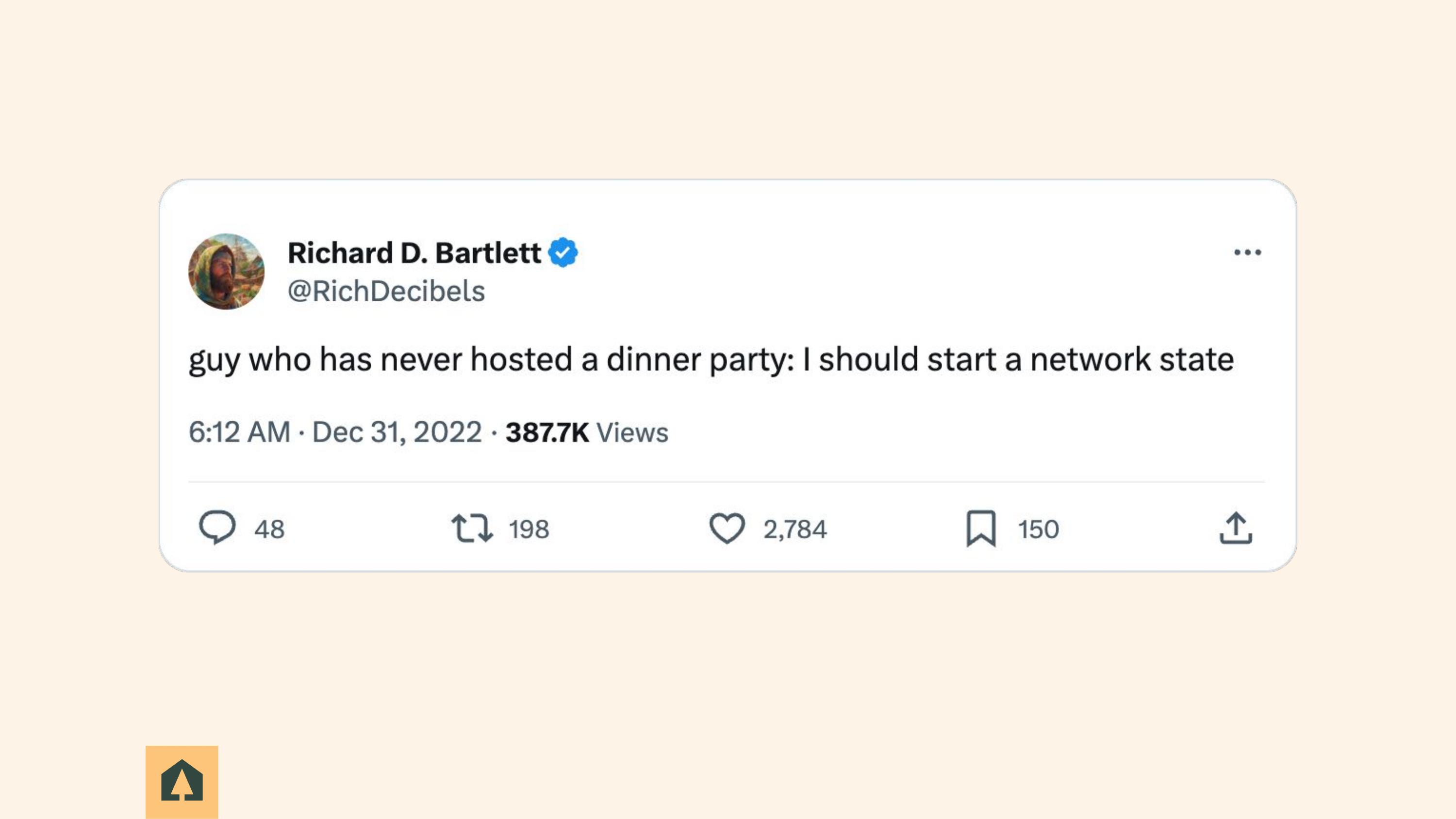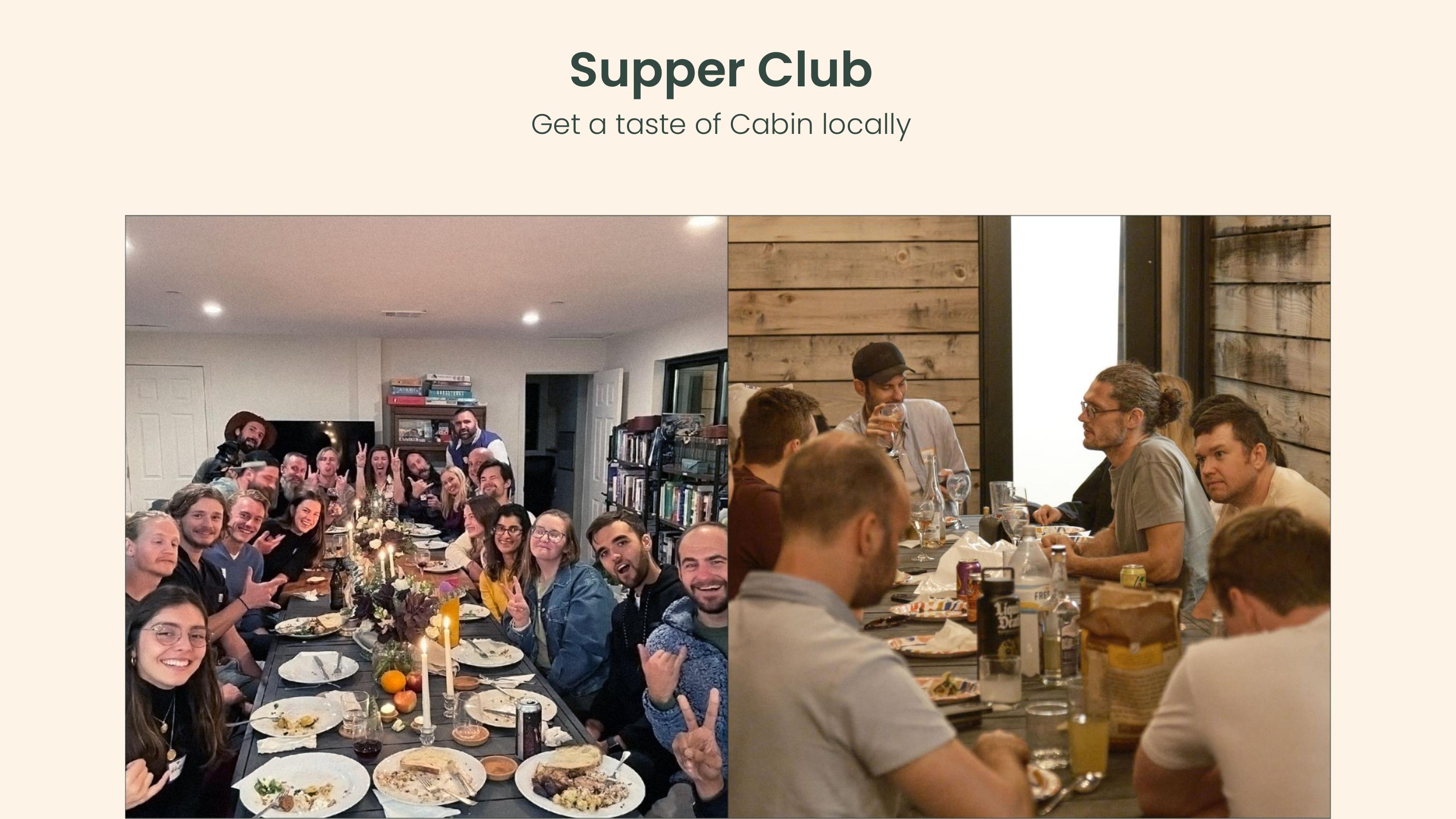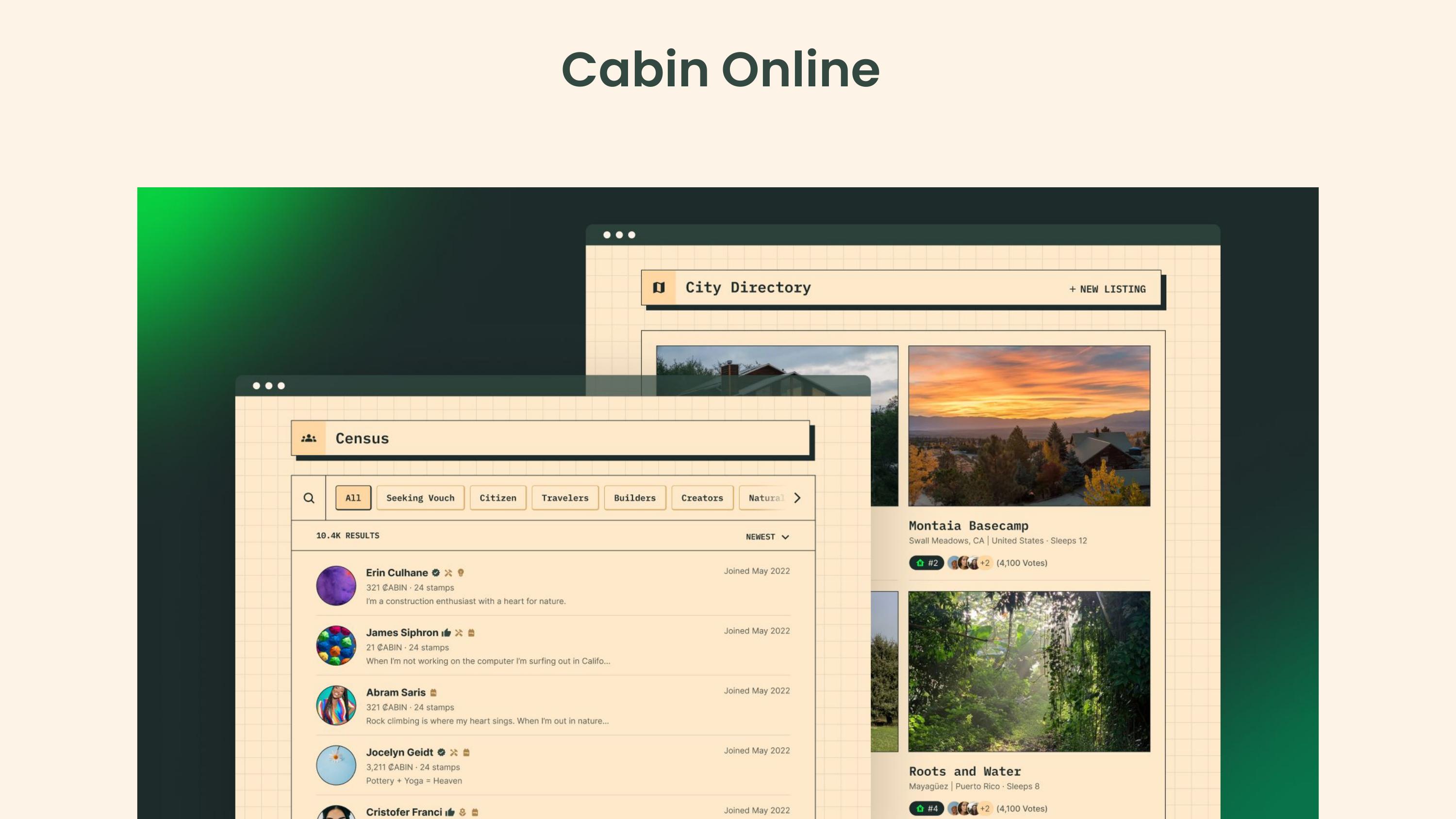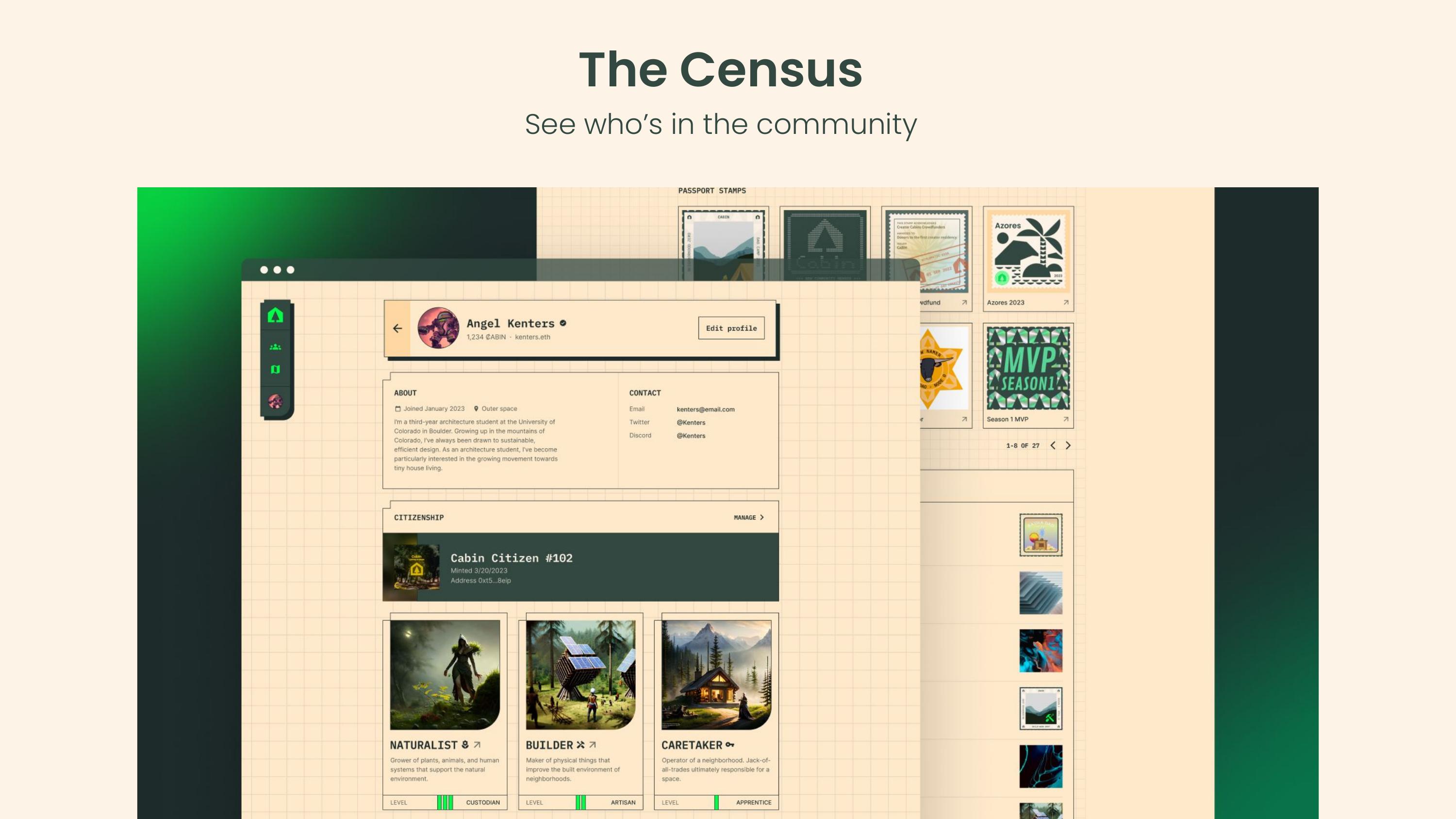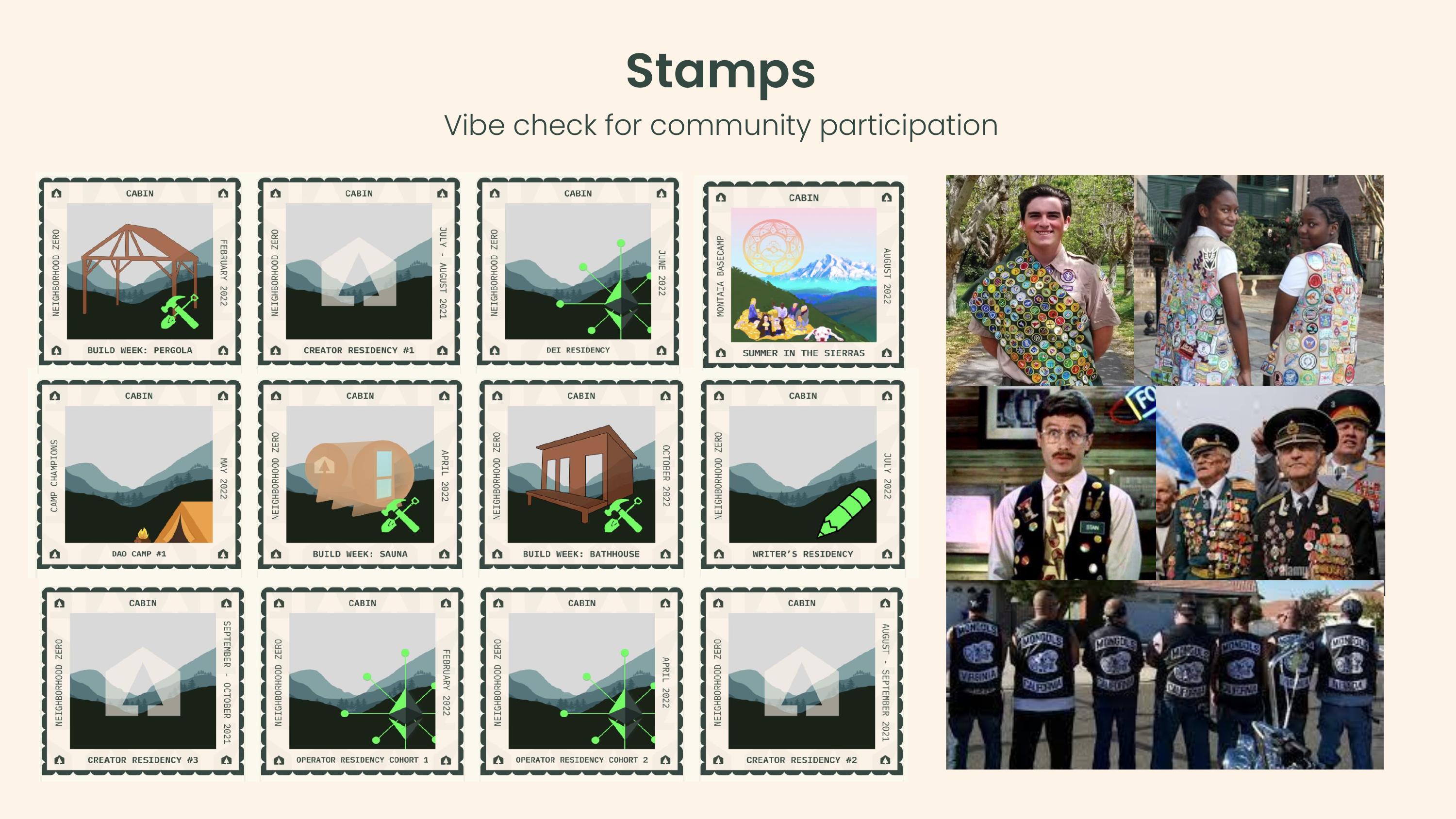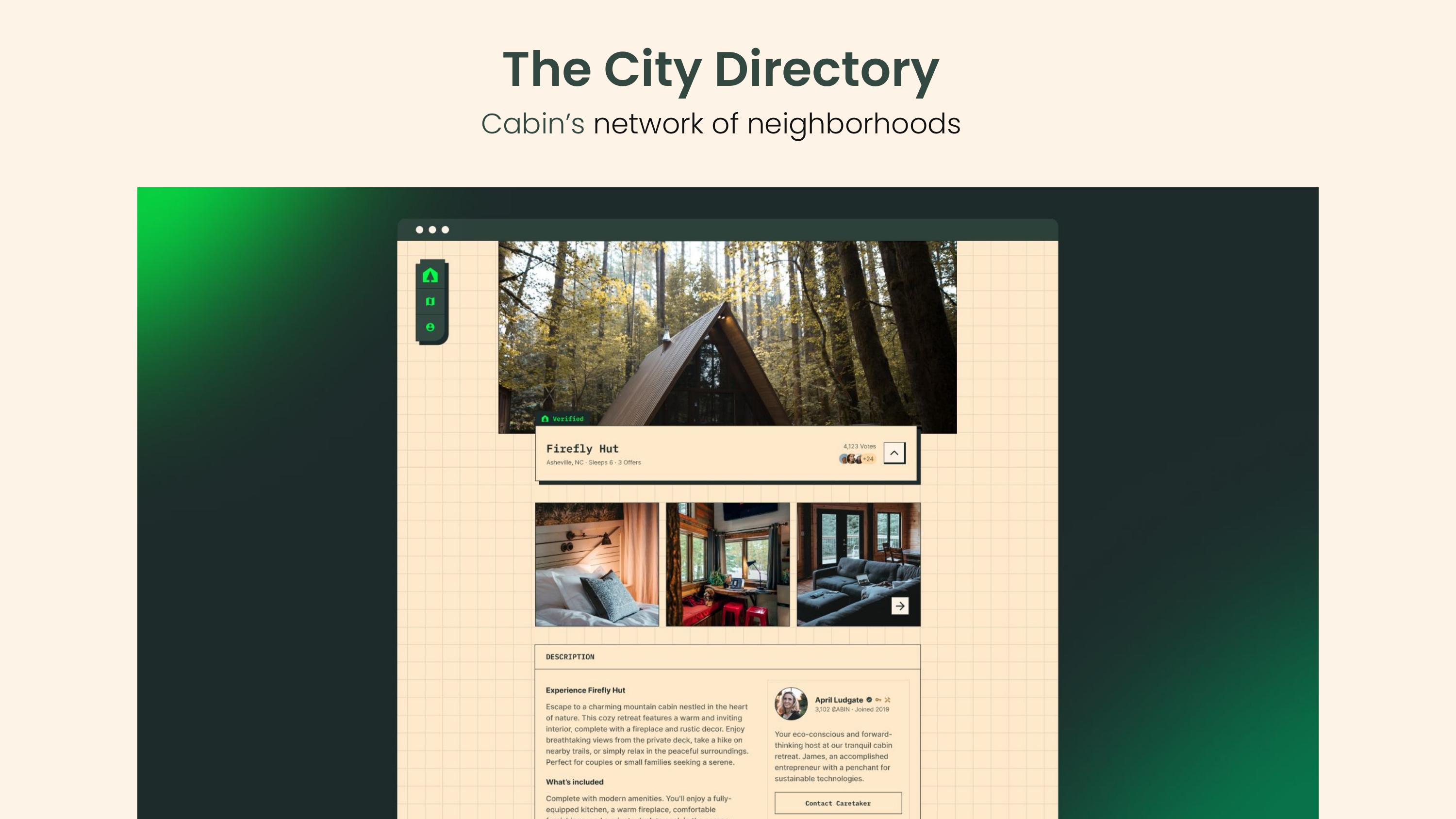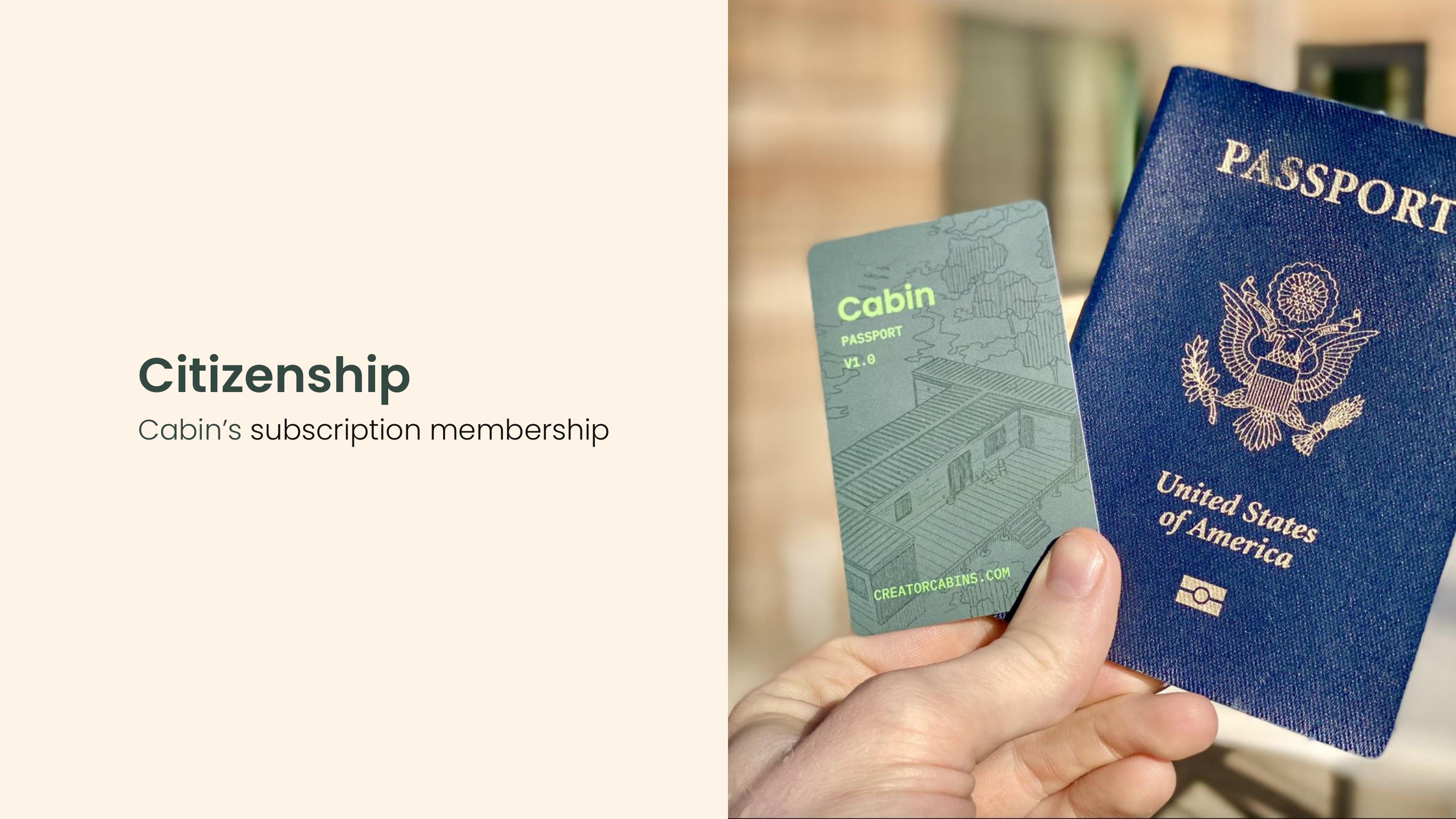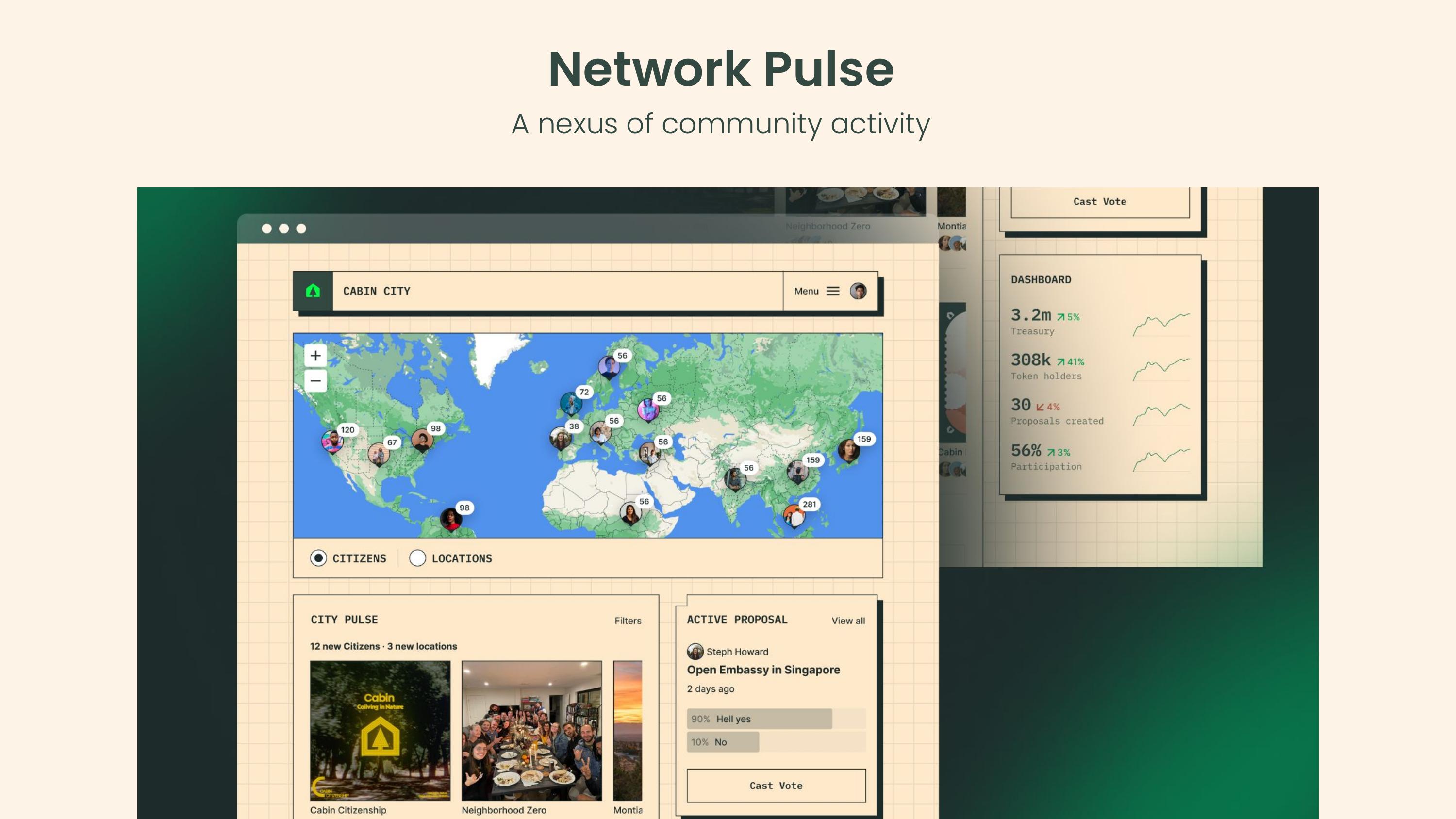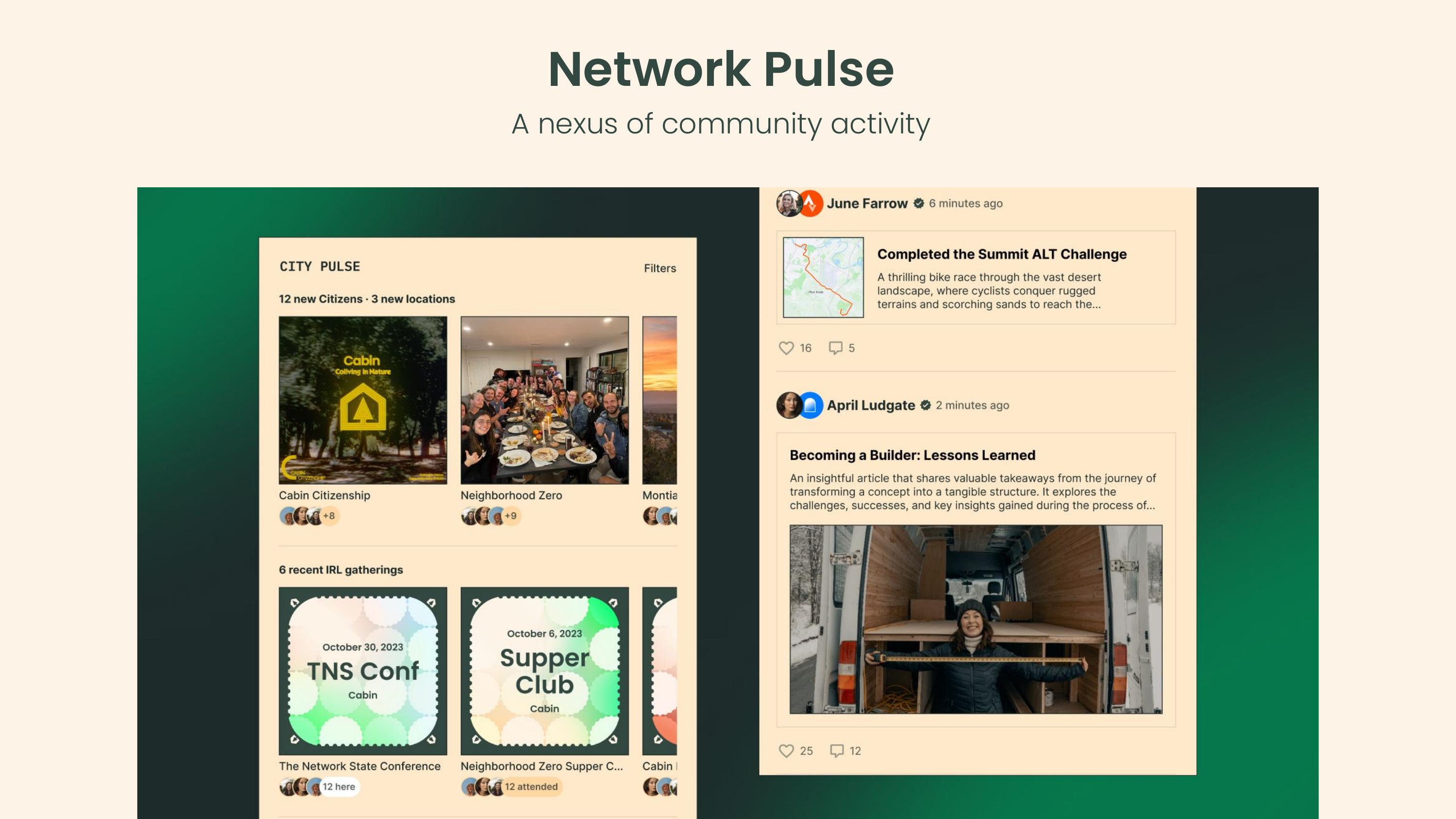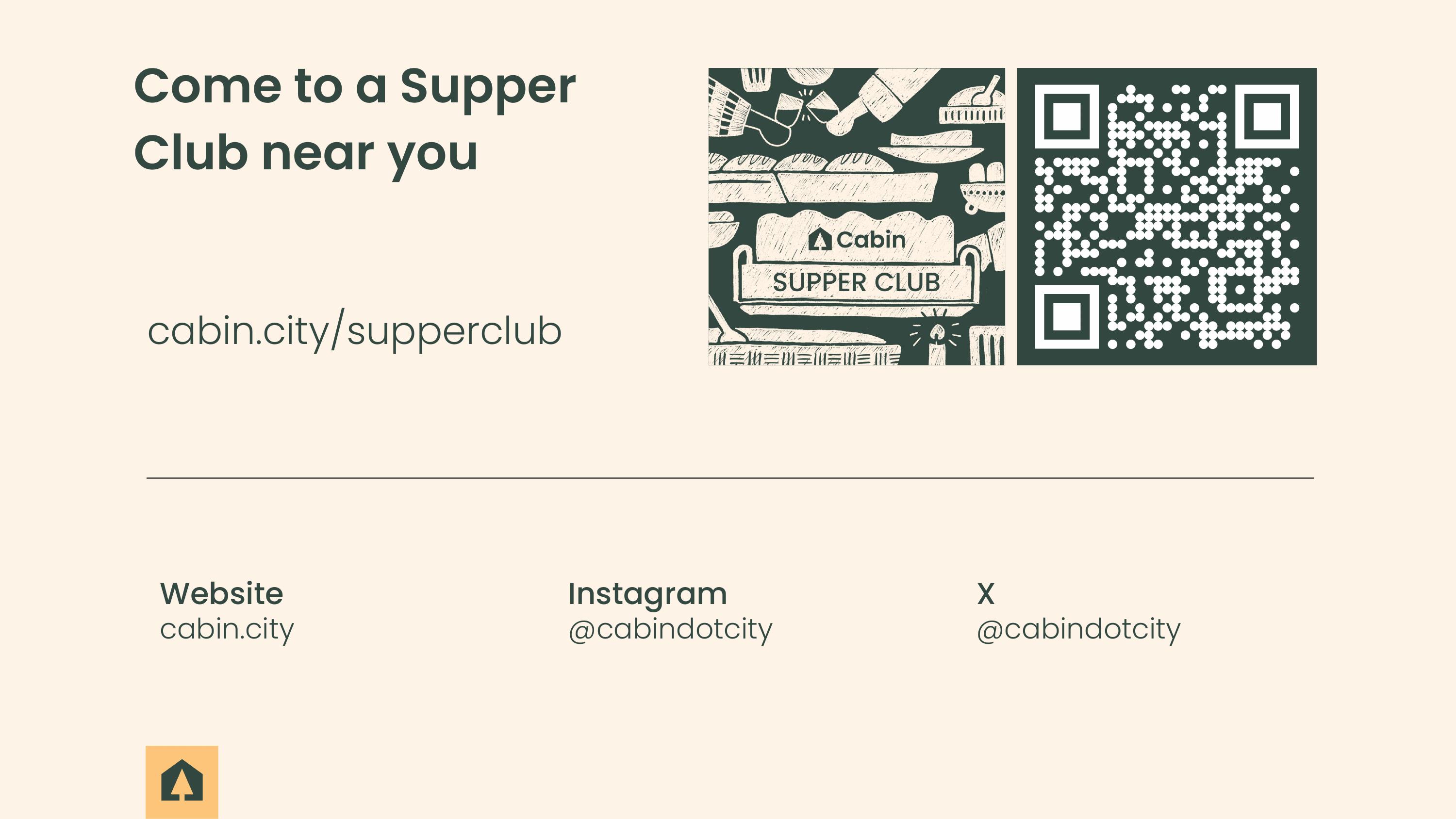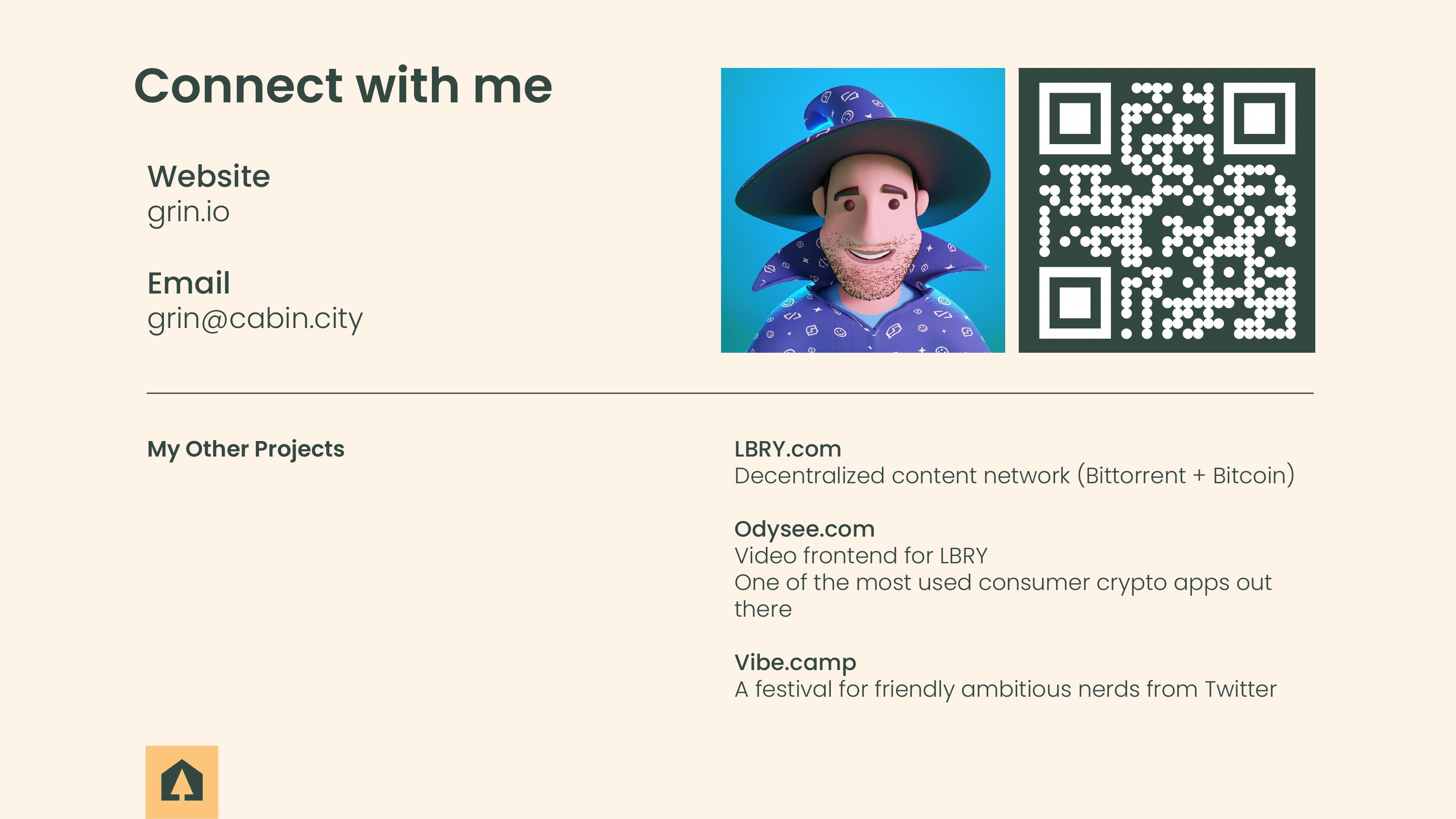I recently gave a talk at Balaji’s Network State Conference in Amsterdam. It’s a conference for people interested in founding, funding, and finding new communities and parallel institutions.
Topics included startup societies, network states, digital nomadism, competitive government, legalizing innovation, and building alternatives.
The conference was a bit of a coming-out party for everyone working in this space over the last few years. One of the coolest parts of it for me was seeing so many of my friends up on stage giving talk about their projects. Brooke did Vibecamp, Priya and Andrew presented Fractal, Jason Benn talked about Neighborhood SF, etc. None of these are famous people, but we shared the stage with people like Glenn Greenwald, Vitalik Buterin, Garry Tan, and Tyler Cowen.
Personally, my goal was to rep Cabin, meet people (both the top builders in the space and also the biggest network state supporters), and to try to understand how Cabin can best serve the world.
Here’s a video of my talk, and also the slides and expanded text of what I said. I also did a Cabin-focused writeup of what I learned.
Enjoy!
Video
Slides and Text
Cabin is a group of internet friends building a network city of modern villages.
That’s kind of a long description, so let’s take that sentence piece by piece. When I say a group of internet friends, I mean a pretty big group.
The Cabin community has over 4200 members. Of those, 355 are Cabin citizens (citizenship is a paid yearly membership). We also have 23 locations around the world where Cabin members live and gather.
These people and places comprise our network city.
So what’s a network city?
It’s a city thats partially physical like a normal city, but it’s also distributed across space and onto the internet.
We think of the city less as one physical place, and more as the context for your day-to-day activity – where you live, work, see your friends, raise your kids.
Today’s cities exist only in the physical world. But most of us live at least partially online. So our cities are no longer meeting our needs.
Unlike a network state, we’re not aiming for diplomatic recognition. But we do want people to someday be able to say “I live in Cabin” and really mean it.
So that’s the the network city part. What is a modern village?
That’s the shortest way of expressing the two halves of our vision.
The village is about community, nature, and close relationship, while modern embraces technology and innovation.
At the core of Cabin are three obvious truths that guide our vision. Or at least they feel obvious and true to us.
We believe co-creation grows culture. People bond by overcoming challenges together.
We believe we’re at our best when we live with people we admire. Thanks to the magic of the internet, we can connect with those people online and then come together in person.
We believe touching grass is good for our wellbeing. Nature and the outdoors permeate everything at Cabin.
Working together with people we admire in nature. That’s Cabin.
Here are some of the people of Cabin.
These are the real people who’ve joined our community calls and stayed at properties in our network.
Btw, there are no stock photos in this talk. Every photo you see actually happened at Cabin.
These are some Cabin properties. They’re all around the world, including a few here in Europe.
They’re beautiful locations, all with high speed internet and nature right outside the front door, and they’re open to Citizens.
A bit of our history: Cabin is a few years old now.
Over the years we’ve done dozens of gathering experiments across multiple sizes and durations: from small dinners and conference events, to weekend-long camps for dozens of people, to residency programs for online creators and DAO leaders, all the way up to long-term coliving and from-scratch neighborhood development.
These experiments confirmed to us that complex things like cities must evolve from smaller, simpler versions of themselves. You can’t build them all at once. You have to slowly grow them, like a garden.
This tweet really sums it up well.
Well good news, Rich! We’re solving this problem with …
It’s exactly what it sounds like: meet interesting people, cook a meal together, talk to each other, drop some selfies on social, and Cabin picks up the bill.
It’s the simplest way for new people to start making connections in the Cabin community.
So even if you’ve never hosted a dinner party, we’ll help you start your journey to building a network state 😁
So far I’ve focused on Cabin’s physical presence because we believe the most important thing here is relationships between people, and there’s still no substitute for building those in-person.
But we’re a network city and we build things with code, not just wood.
Over time, we’ve developed a system of several components that work together to connect Cabin members online.
These primitives will exist in any online/offline community, though they’ll look different depending on the community history and values.
Here’s what ours looks like.
The first piece of our app is the Census. It’s your digital presence in the Cabin online world.
Anyone can create a profile and begin building their identity and reputation within the community.
Over time your profile accrues stamps, kind of the way a laptop collects stickers or a boy scout earns merit badges.
These are onchain credentials that provide a cultural vibe-check by recording what you’ve done with the community.
We’ve given out thousands of stamps to members for joining community calls, attending events, completing residencies, and coliving with Cabin.
Next is the City Directory. It determines which locations are “within city limits” for Cabin.
It’s also an open token-curated registry. Any Citizen can add locations, and people can vote their tokens toward the places they like most.
Locations with more votes move to the top of the list, which provides information to guests and feedback to hosts.
Subscriptions are a natural way to fund the growth of network cities, and citizenship is our subscription membership at Cabin.
For 0.2 Eth a year, citizenship grants access to locations in the City Directory, our annual gathering, partnership perks, and more.
When you join, you get a numbered Citizen NFT, some ₡ABIN tokens for governance, and a custom chip-embedded passport card.
These have custom chips made by a DAO called Kong Land. They have a private key and do transaction signing on-chip, so they’re are much closer to a Ledger than a standard NFC.
Citizenship works on a web-of-trust model, so you have to know an existing citizen who’ll refer you. Reach out to me if you want in.
Finally, the Pulse is Cabin’s network homepage. This is something we’re just starting to build now.
You might remember something like from Balaji’s Network State in One Image. Our’s is less of a dashboard and more of a bulletin board in the town square.
It’s a single place where you can go to see what’s happening around Cabin and what’s coming up.
For example, there’s a map of where citizen are now, and where they want to meet later or start new Cabin nodes.
But it’s not just activity that happens in the Cabin app…
It’s also activity from Cabin members across the whole internet. There’s a Strava challenge that people compete in, blog posts get pulled in from Mirror or Substack,
All the social and onchain activity from the commuinty, together in one place.
We think this is how hybrid communities will bridge the gap between physical and digital presence.
We built this for us, and we’re also building it for you. This whole stack – stamps, citizenship, the pulse, we also have roles, a booking platform, and a bunch of others things I didn’t mention — they’re a product of everything we’ve learned over the years, and we want to offer them to you.
The names, look and feel of the pieces will be different, but the underlying social primitives exist in all communities in this space.
If you want something like this for your network city, get in touch with me.
If you’re looking for IRL connection, I want you to come to a supper club.
Don’t be that guy from the tweet. If you’re here and you’re serious about network states, a local dinner is the easiest way to start.
Go to cabin.city/supperclub and sign up for one.
cabin.city also has links to our Discord, our community forum, our newsletter, and so on.
And if our app caught your eye more than the in-person stuff, then yea talk to me and let’s collaborate.
Once again, I’m Grin, the tech lead at Cabin.
Before Cabin, I was a founder of other adjacent projects you may have heard of, like LBRY, Odysee and Vibecamp.
And I’m at Cabin now to build the city that I want to live in, not just for me but for my family, my friends, and my tribe.
Get in touch 👋
